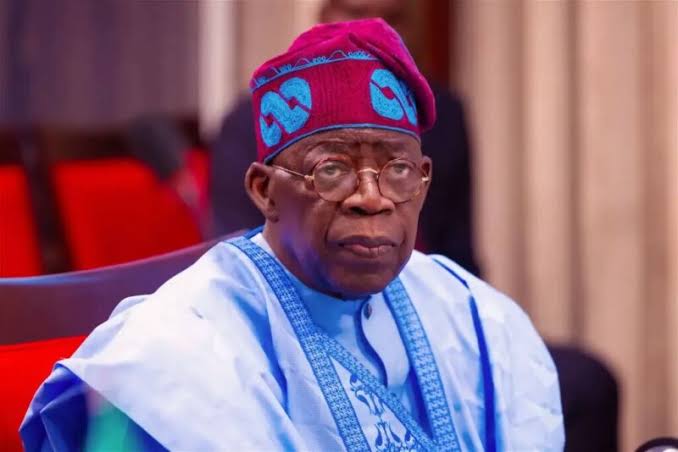Tinubu’s Two-Year Mark: A legacy of unfulfilled promises

10 things to know about Saint Lucia amid Tinubu’s visit.
President Bola Tinubu’s administration clocks two years in office, a milestone that invites a critical reflection on its performance. Elected in 2023 with a 37% vote share, the lowest of any Nigerian president, Tinubu promised to tackle insecurity, boost the economy, and unify the nation. Yet, as Nigeria grapples with hyper-inflation, multiple conflict fatalities since 2024, and over 735 mass abductions since 2019 according to NFIU April 2025 report, the administration’s record is a crystal story of unfulfilled promises and deepening crises. While Tinubu’s bold reforms, like subsidy removal, aimed to stabilize the economy, their execution has fueled hardship, political opportunism has destabilized regions, and a failure to address insecurity has left Nigerians questioning his leadership. Two years in, Tinubu’s administration has largely failed to deliver, leaving a nation yearning for the renewed hope it was promised.
Tinubu’s economic reforms
Tinubu’s economic policies were his flagship promise, with the May 2023 fuel subsidy removal hailed as a game-changer. A July 2023 Reuters report quoted Tinubu claiming the move saved over 1 trillion naira ($1.32 billion) in two months, funds meant for infrastructure and social programs. Yet, the reality is a dark contrast resulting to soaring fuel prices and hyper-inflation, pushing 70% of Nigerians below the poverty line. The naira’s plunge to N1,532.94/$ , with forex reserves at $33.5 billion, reflects a failing economy.
The administration’s borrowing further undermines its economic narrative. Despite subsidy savings, Tinubu borrowed N7.3 trillion in ways and means loans by December 2023, following Buhari’s N22.7 trillion. This contradiction: borrowing heavily while claiming fiscal savings has increased doubts amongst Nigerians. However, debt servicing consumes 50% of federal revenue, leaving little for education or healthcare. Tinubu’s economic reforms, while bold, have failed to deliver relief, instead exacerbating hardship for ordinary Nigerians.
RELATED STORIES
Is Tinubu’s reelection more important than Nigeria’s economy?
Opinion: Why Tinubu’s plea for silence is an insult to duty
Atiku, Ohanaeze, Afenifere… critics and supporters of Tinubu’s tax reform bill
Insecurity
Tinubu campaigned on ending insecurity, but two years later, Nigeria is more unsafe than ever. The European Commission recorded 6,100 conflict fatalities in 2024, with Boko Haram, ISWAP, and bandits operating freely in ungoverned areas of the North. The NFIU’s April 2025 report of 735 mass abductions since 2019, including 363 school children in Kaduna and Sokoto in March 2025, shows the persistent realities of the crisis. Parents have withdrawn their children from school for fear of abduction and death, leading to more out-of-school children and creating ignorance.
Tinubu’s administration has failed to deploy effective security measures, with rural areas like Zamfara controlled by bandits. Critics notes state governments’ complacency and complicity, such as Katsina’s 2019 bandit exchanges, a practice that continues under Tinubu’s watch. His April 29 plea for Nigerians not to criticize his mismanagement reflects a refusal to own these failures, further eroding trust. Tinubu’s inability to secure the nation is a glaring failur, leaving citizens vulnerable and disillusioned.
Political opportunism
Tinubu’s political maneuvers have deepened regional instability, undermining his promise of unity. Delta State Governor Sheriff Oborevwori’s defection to the APC on April 23 is part of a broader trend, consolidating APC power at the expense of democratic balance. Political analysts caution that a weakened opposition, as the PDP crumbles and Labour Party struggles with in-house conflicts leads to unchecked governance, a dangerous reality as Tinubu’s influence grows. This opportunism distracts from governance. The 2024 “End Bad Governance” protests, where 14 were killed, highlight public discontent, yet Tinubu’s focus on securing 2027, prioritizes power over people. Critics also warn that cross-carpeting erodes democracy, a trend Tinubu’s administration has increased, rather than reduce.
Counterarguments
Tinubu’s defenders might point to some achievements. The World Bank projected a 3.9 trillion naira saving from subsidy removal in 2023, and his N500 billion package for mass transit and farmer loans aimed to ease economic pain. The APC’s consolidation could be seen as stabilizing political tensions or easing differences. But these gains are overshadowed by execution failures, savings haven’t materialized into tangible benefits, and political defections have fueled instability, not progress, a void Tinubu has failed to fill with a unifying vision.
Final take
On May 29, 2025, Tinubu’s two-year tenure is a book of failures: economic hardship, unchecked insecurity, and political opportunism have defined his administration, not the renewed hope he promised. Nigerians, facing humanitarian crisis, deserve a leader who acts or delivers and not deflects. Nigerians are losing faith in their democracy. Tinubu must prioritize security, transparency, and equitable growth or risk creating a legacy of betrayal. Two years in, his administration has failed the test. Nigeria demands better.

